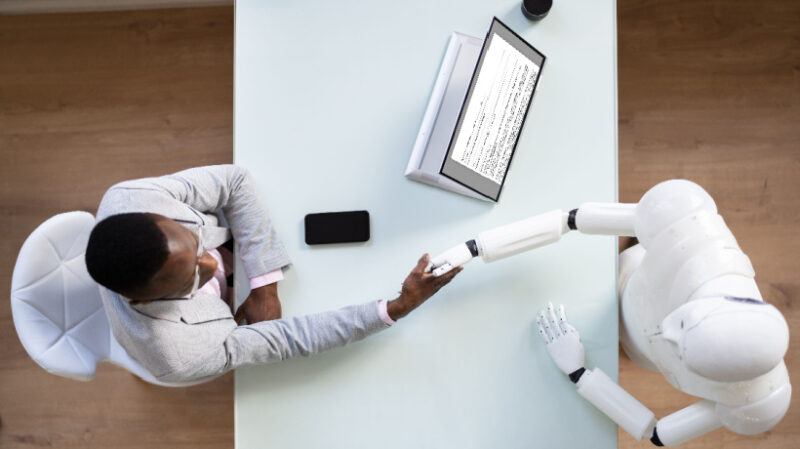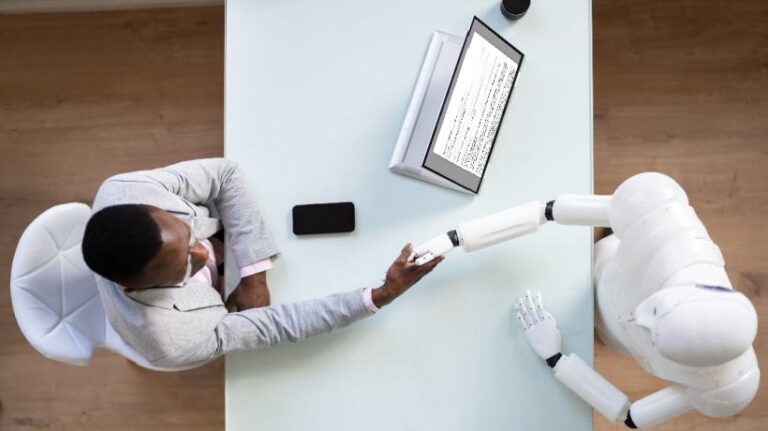
AI interview simulation tool for mastering soft skills
In today’s rapidly changing workplace, technical know-how is not enough to guarantee the success of professionals. Employers are increasingly looking for candidates who not only have the right hard skills but also demonstrate adaptability, emotional intelligence, communication skills and collaborations called “soft skills.” However, despite its growing importance, soft skills are notoriously difficult to teach, evaluate and measure within traditional e-learning systems. That is where AI-powered interview simulations intervene.
The urgency of soft skills in the modern workforce.
Our workplace is experiencing earthquake changes. With the rise of hybrid models, distributed teams and automation, skills like empathy, communication, problem-solving are no longer important. These are essential. According to the LinkedIn Global Talent Trends Report, 89% of recruiters say that when employment fails, it usually results in a lack of soft skills.
But there is a permanent gap. Learners can be exposed to concepts such as “teamwork” and “critical thinking” through online modules and webinars, but rarely get real-time practice or meaningful feedback. Soft skills are not developed in vacuum. It requires context, application, and reflection. This gap is particularly broad for new graduates and career switchers with no experience in the workplace.
Traditional e-learning is lacking
Traditional Learning Management Systems (LMSS) are excellent at providing technical content. Code lessons, compliance training, product knowledge, and more. However, when it comes to human-centered skills, the limitations become clear.
There is no contextual practice
Watching videos about active listening is not the same as practicing in conversation. One-Size-Fits-All Feedback
Quiz can test knowledge, but performance cannot be tested in real scenarios. Lack of measurement tools
Tracking improvements in skills such as empathy and persuasion using traditional metrics is difficult.
Soft skills require experiential learning and performance-based assessment. This is where the intersection of artificial intelligence and immersive learning becomes powerful.
AI to assess soft skills: a new frontier
Artificial intelligence has emerged as an important tool in closing the soft skills gap. Using AI to assess soft skills, learning providers and employers can move from assumptions to insights. AI-equipped systems can now simulate real-world scenarios and analyze user responses in ways previously only possible with human evaluators.
Things that AI can measure
AI in interview simulations not only see what learners say, but also how they say it;
Tones and audio patterns
Are you confident in your speakers? Nervous? Monotone? Face cues and body language
Using computer vision, AI can detect eye contact, posture, and facial expressions. Word selection
Sentiment analysis can determine emotional tone, positive, or potential bias. Pacing and clarity
Do users communicate clearly and concisely?
These data points are processed to provide objective and practical feedback to learners, such as “the tone comes across as he’s hehe in team-related questions” or “Your answer lacks the specificity of a problem-solving scenario.”
Why is AI interview simulation unique?
Unlike traditional e-learning evaluations, interview simulations with AI are empirical and contextual. This is why they work:
Real-world scenarios
Learners are faced with simulated questions that are in line with the role of their actual work. Adaptive Feedback
AI provides instant, personalized coaching tips. A safe space to practice
There is no judgment. Learners can try, fail and improve without fear. Scalable evaluation
What was previously possible only through face-to-face mock interviews can now be done asynchronously and on a large scale.
Interview simulation use cases across the learning ecosystem
1. Higher Education and Career Services
Universities can prepare students for placement by using AI interview simulations to provide a safe environment for practicing behavioral interviews. Career counselors track student progress through dashboards and tailor coaching sessions based on AI-generated reports.
2. Corporate L&D Program
Organizations can embed these simulations in onboarding or uplifting journeys. For example, a customer service representative may go through modules on how to handle difficult clients and practice in AI interview scenarios to enhance their learning.
3. Training and the Edtech Platform
The Edtech platform, which offers professional courses, can integrate interview simulations at the end of the soft skills module. This turns passive video learning into active performance-based training.
Bridging the gap between learning and employability
Employers often lament that e-learning doesn’t prepare real-world candidates. In AI-powered interviews, there is a direct line from what learners face in real-world employment interviews and team interactions.
Additionally, learners receive detailed insights that help them build self-awareness, an important component of emotional intelligence. For example, learners may discover that lack of eye contact or monotonous delivery hurts perceived confidence while speaking to the fluent.
Addressing concerns: Is AI fair and accurate?
Just like any other technology that assesses human behavior, questions about fairness, bias and transparency are effective. The main platform uses training datasets designed to minimize cultural and gender bias. They also provide transparency by explaining scoring rubrics and providing review options for learners and coaches.
Additionally, these platforms continuously update their models to reflect actual data and user feedback. In this way, AI becomes more reliable over time.
Measure ROI: Beyond Engagement
One of the greatest benefits of using AI to assess soft skills is that it provides a measurable ROI for your learning program.
Performance improvements over time
The dashboard shows individual and cohort growth. Interview success rate
Educational institutions and training providers can correlate simulation scores with placement results. Reduction
For employers, improving soft skills means smoother boarding, fewer misunderstandings and stronger team dynamics.
Future outlook: From interviews to everyday interactions
As AI continues to evolve, its applications move beyond job interviews to daily workplace simulations. Imagine:
Practice negotiations with AI avatars before the sales pitch. Rehearsal of conflict resolution scenarios using AI feedback. Join coaching on intercultural communication before working with a global team.
In the future, soft skills training will not be an afterthought. Built into your daily workflow, AI becomes a constant companion for personal development.
Conclusion
The demand for soft skills is at the highest ever, but traditional e-learning hasn’t been on the way. There is ultimately a way to assess and nurture these important human abilities on a large scale through AI-powered interview simulations. Whether you are an L&D leader, educator, or learner, embracing AI to assess soft skills is no longer an option. This is a strategic obligation to be relevant to the future of work.
By providing a realistic, data-rich, personalized experience, AI simulation bridges the gap between theory and practice. And in doing so, they empower individuals to not only learn, but also grow into the kind of professionals that modern workplaces really need.


